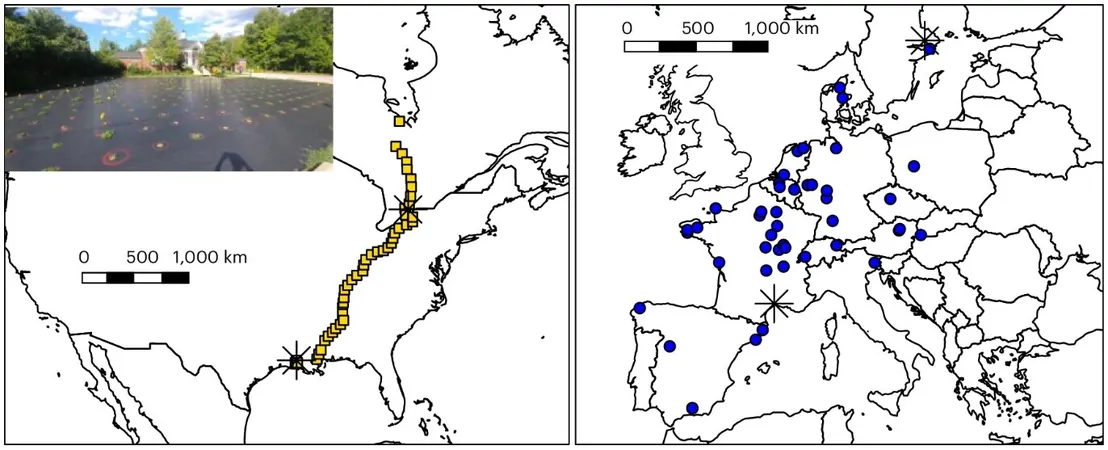
Breakthrough Study Uncovers Brain Changes Linked to Loss of Smell After COVID-19
2025-01-22
Author: Rajesh
In a groundbreaking study, experts have unveiled significant changes in the brain that could provide answers about the persistence of anosmia—loss of smell—following COVID-19 infections. With the use of advanced proton magnetic resonance spectroscopy imaging (MRS), researchers have pinpointed altered neurochemical patterns in the orbitofrontal cortex (OFC), a critical area believed to influence olfactory perception.
The research team, led by Shadman Nemati from the Department of Otolaryngology and Head and Neck Surgery within the Otorhinolaryngology Research Center in Iran, examined 54 participants—27 suffering from COVID-related anosmia and 27 control subjects with normal smell function. Their findings revealed that those still experiencing loss of smell exhibited markedly lower levels of three key metabolites: N-acetyl aspartate (NAA), choline (Cho), and creatine (Cr) in the OFC region.
These neurochemical alterations highlight the complexity of the brain's response to COVID-19. Although the origin of this persistent anosmia remains opaque, the research suggests that central nervous system dysfunction could significantly contribute to the issue. The study's authors hypothesize that the elevated Cho/Cr ratio found in patients with lingering anosmia may indicate ongoing cellular disruption or heightened membrane turnover in the orbitofrontal cortex.
What does this mean for those grappling with the loss of smell after recovering from COVID-19? According to the study, the ratios of NAA/Cho and NAA/Cr are notably correlated with olfactory performance in smell identification tests. The findings are not just academic; they point towards potential biomarkers for predicting recovery chances, giving patients and healthcare providers hope for targeted therapeutic strategies.
“Further studies involving larger cohorts and diverse clinical settings are needed to validate the predictive value of the Cho/Cr ratio,” the authors stressed, suggesting an urgent need for continued research into these profound neurochemical dynamics.
As we continue to navigate the consequences of the COVID-19 pandemic, understanding the neurological impact may provide vital insight into the long-term health of many individuals. For those enduring the frustrating reality of anosmia, these findings offer not just scientific validation, but also a glimmer of hope for potential recovery in the future. Stay tuned, as more insights and breakthroughs in this area will surely emerge in the fight against lingering COVID-19 symptoms!


 Brasil (PT)
Brasil (PT)
 Canada (EN)
Canada (EN)
 Chile (ES)
Chile (ES)
 Česko (CS)
Česko (CS)
 대한민국 (KO)
대한민국 (KO)
 España (ES)
España (ES)
 France (FR)
France (FR)
 Hong Kong (EN)
Hong Kong (EN)
 Italia (IT)
Italia (IT)
 日本 (JA)
日本 (JA)
 Magyarország (HU)
Magyarország (HU)
 Norge (NO)
Norge (NO)
 Polska (PL)
Polska (PL)
 Schweiz (DE)
Schweiz (DE)
 Singapore (EN)
Singapore (EN)
 Sverige (SV)
Sverige (SV)
 Suomi (FI)
Suomi (FI)
 Türkiye (TR)
Türkiye (TR)
 الإمارات العربية المتحدة (AR)
الإمارات العربية المتحدة (AR)